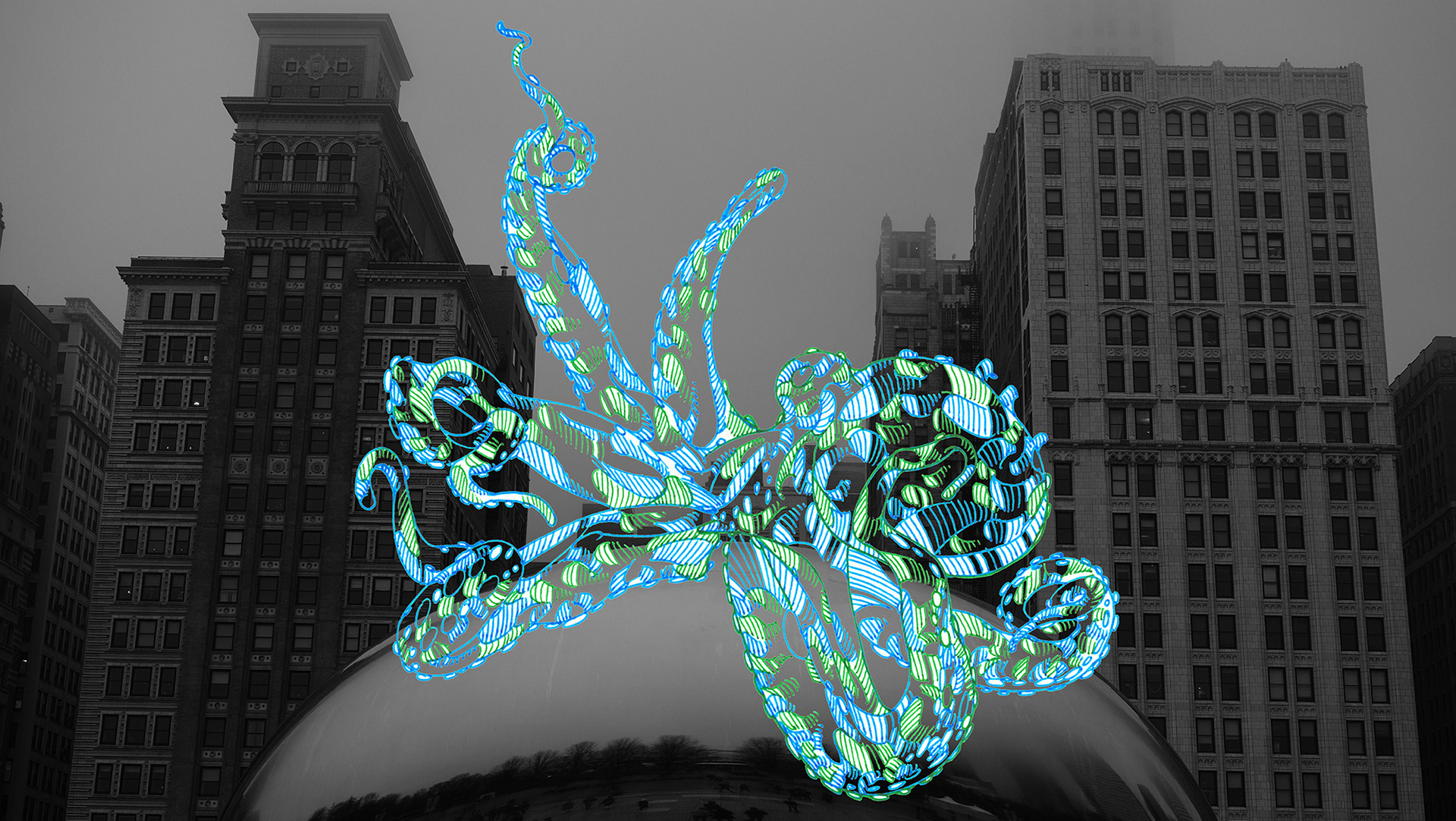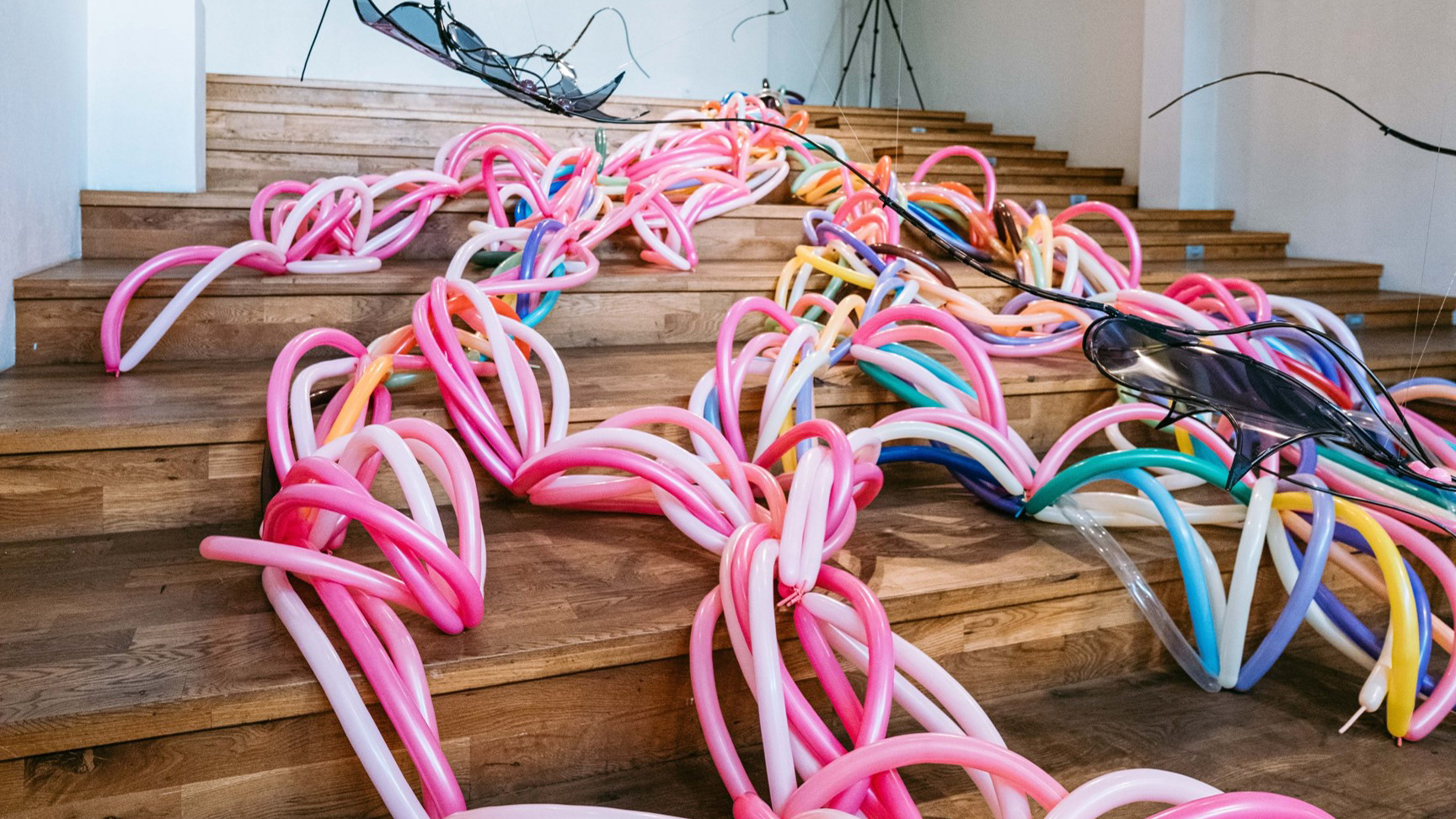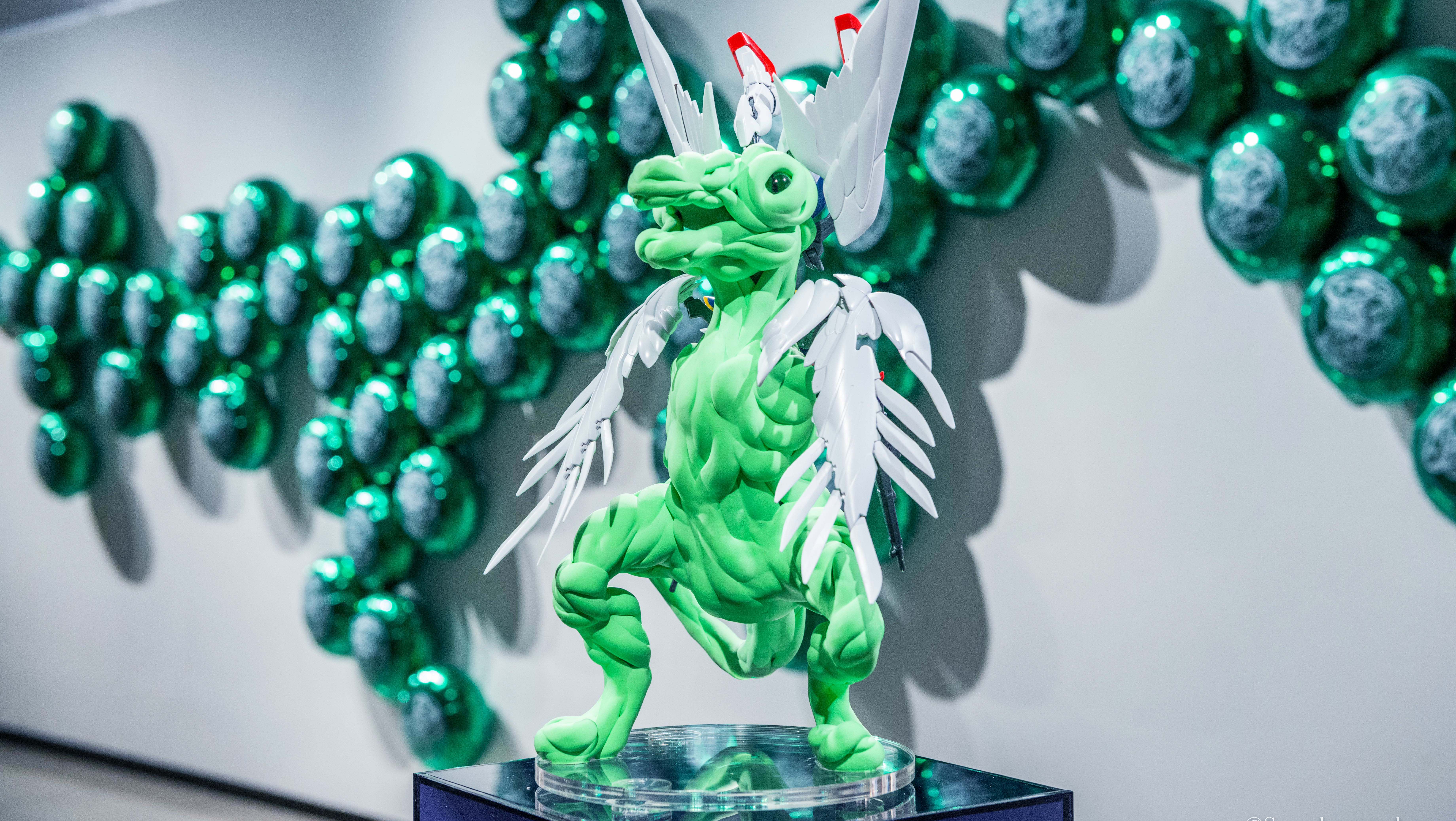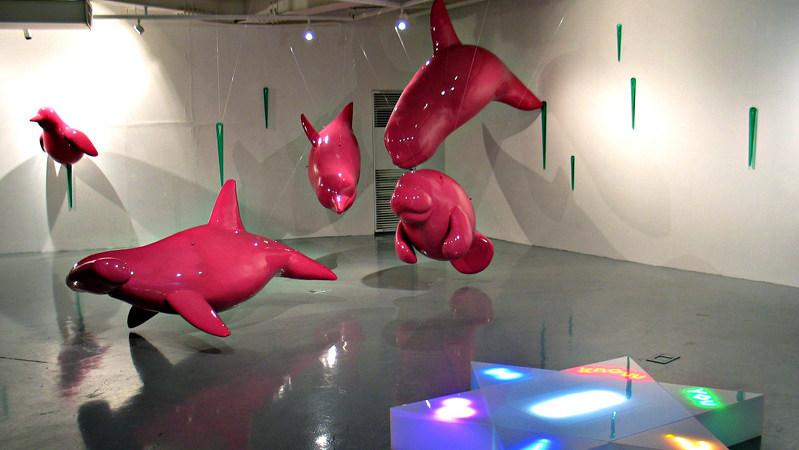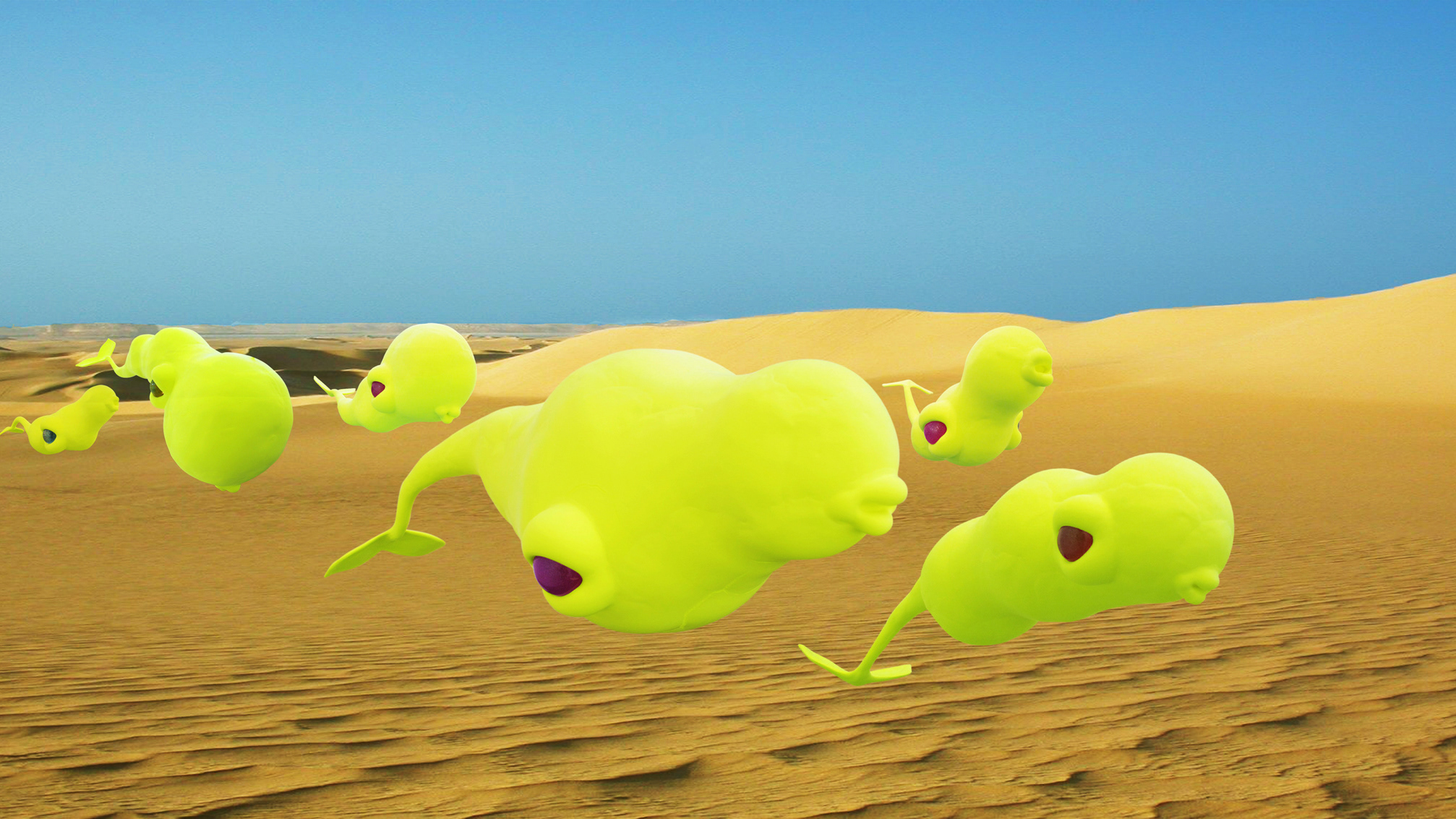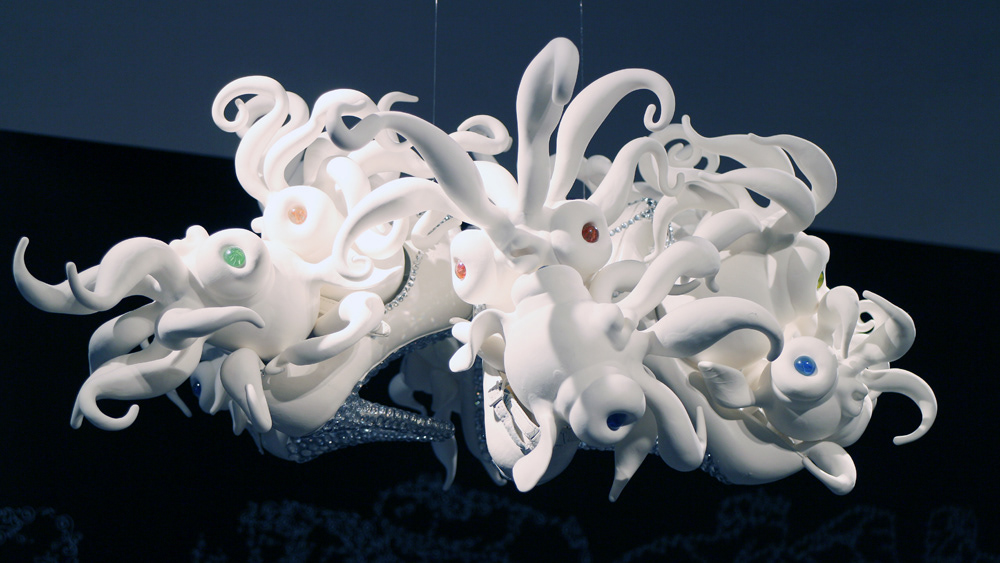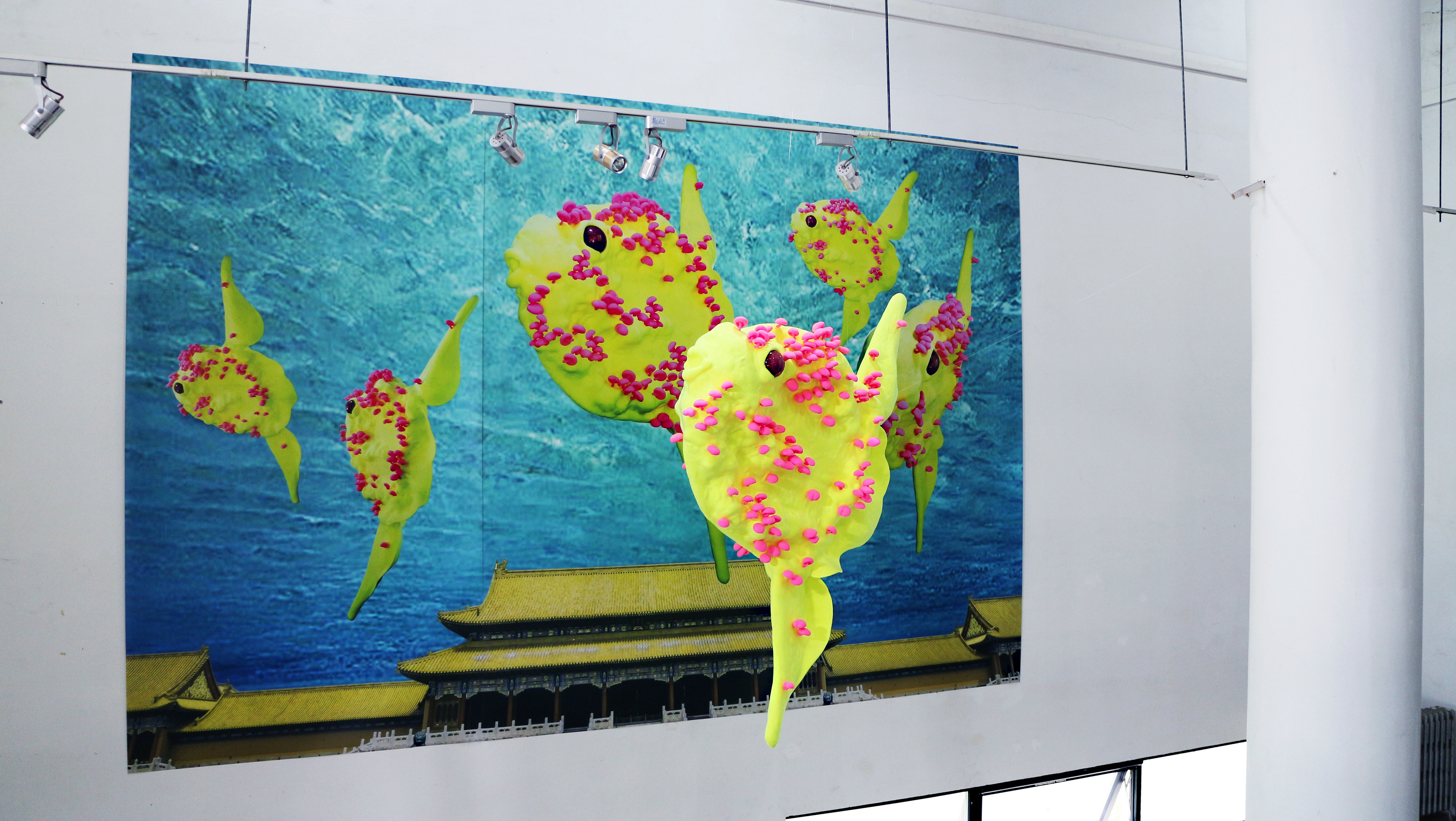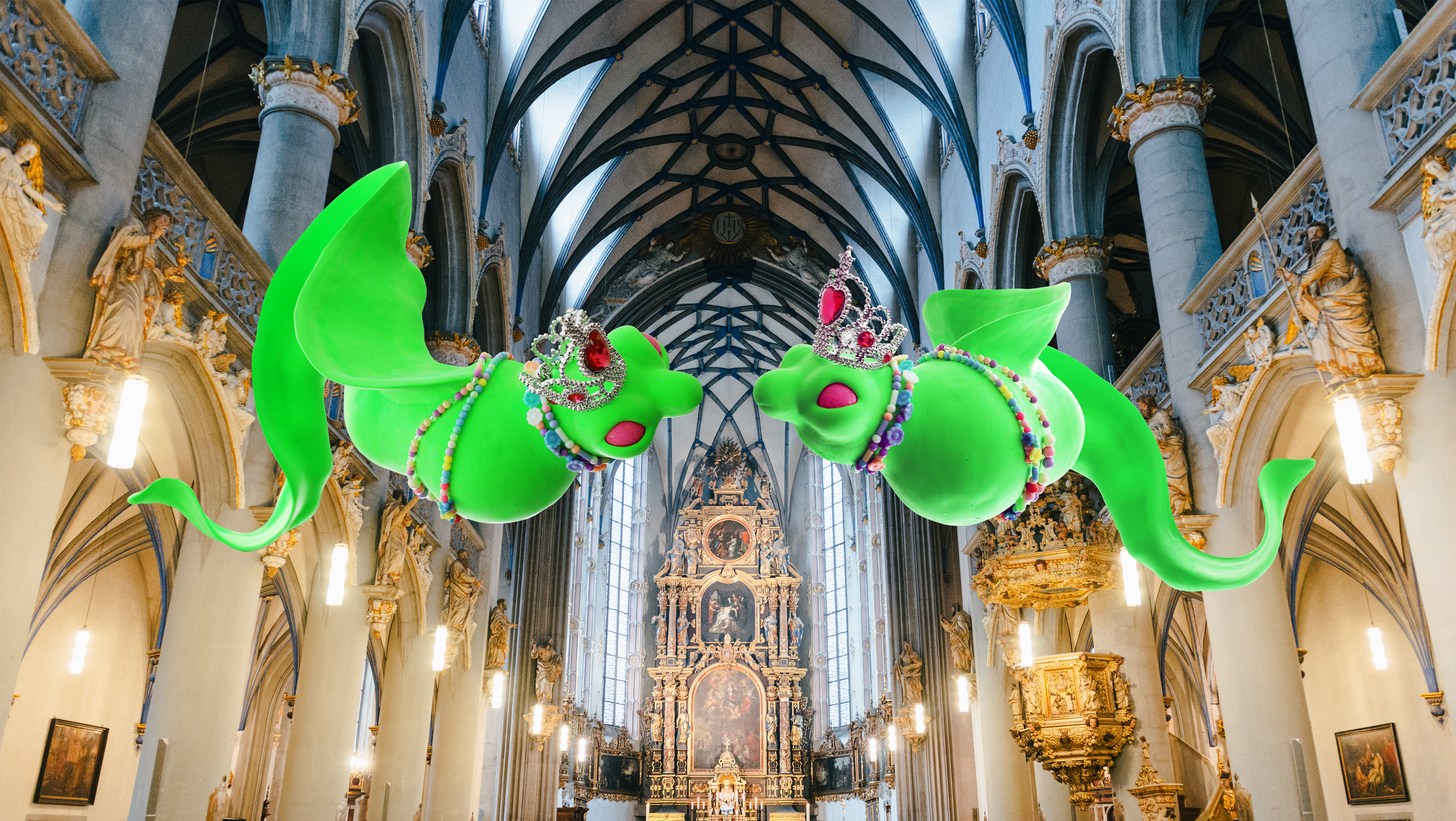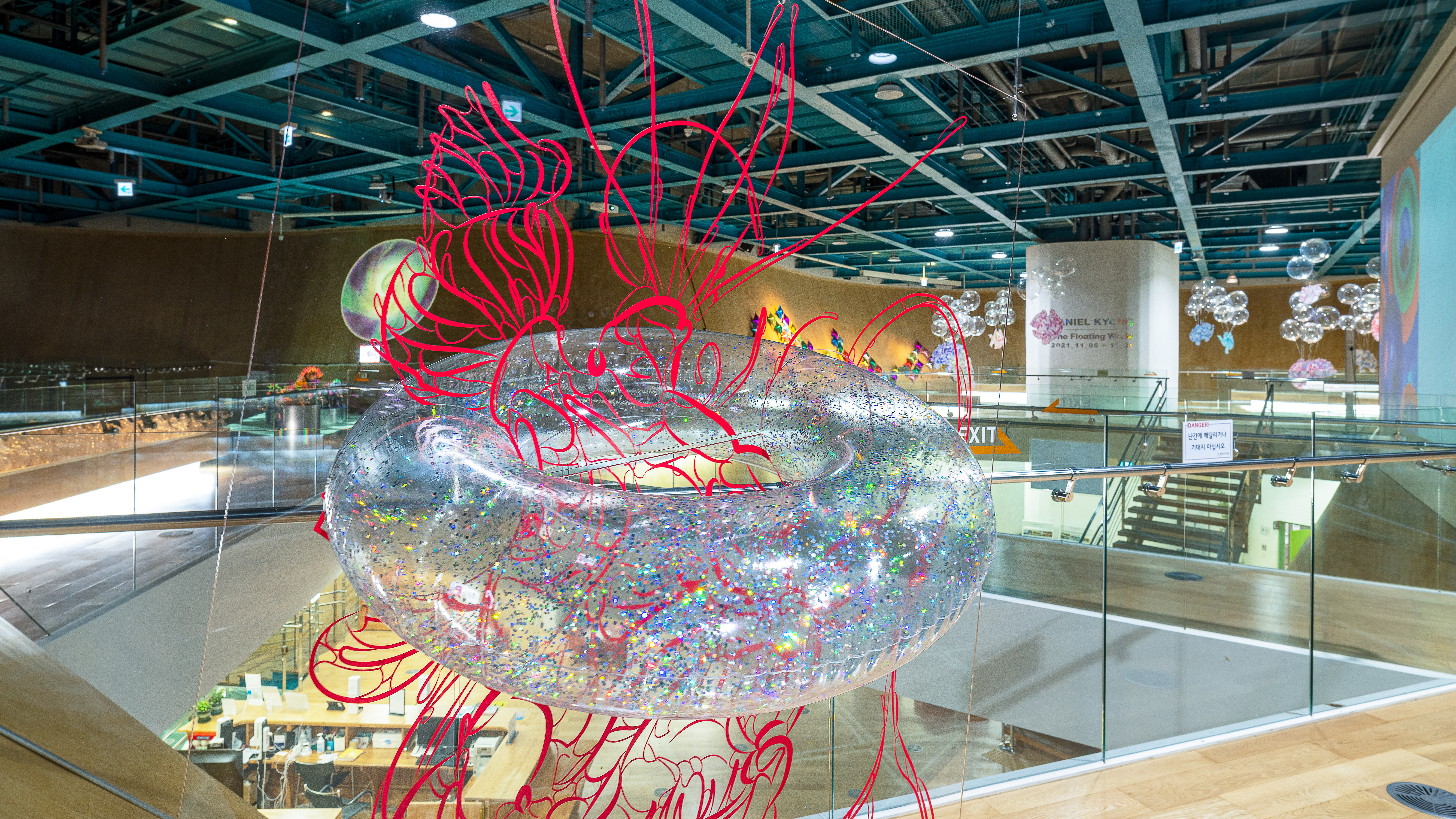just like u_polymer clay, epoxy, toy_11*12*15cm_2008
Humans have continuously possessed imagination and longing for another world other than the real world. Daniel also built his own imaginary world in this emotional and cognitive desire. In particular, for him, the sea functions as a place where he wants to return and as a symbolic space where imaginary beings coexist. Danielle reconstructed each being into an independent character through the process of analyzing and embodying their identity by using imaginary beings as objects of inquiry. Furthermore, he conducted continuous observation to discover the conceptual message of 'promise' among these imaginary beings that are gradually becoming similar in their lives.
The phenomenon of humans resembling a person by internalizing a specific person is similar to the way they resemble their parents in the process of growth. This process of similarity is difficult to explain with simple emotional preferences, and is a possible phenomenon when trust and belief in the object are premised. In other words, there is not only an emotional element but also a rational basis of 'promise' in the act of holding and trusting a specific object in the mind.
However, when faced with a crisis or difficulty in practice, even promises made on the basis of reason can easily be shaken. In Daniel's case, despite fully aware of the legitimacy of the promise, his feelings and imaginations in the face of uncertain situations act as a factor that weakens trust in the promise. He imagines events that have not occurred in advance and amplifies his anxiety on his own, and negative daydreaming and irrational thinking that are difficult to control drive him into a state of anxiety and fear.
Such emotional variability is sometimes reinforced by social and environmental factors. The belief that the judgment of the situation changes according to the change of emotion, and furthermore, trust in others can change, acts as another factor in expanding emotion-centered thinking. Although Daniel has formed a firm promise on a rational basis, emotions shake the belief and lead the individual to a temporary state of confusion.
Therefore, Daniel seeks to acquire the ability to continuously maintain promises that he has decided to accept and trust once, regardless of changes in his emotions, that is, the 'skill to keep the consistency of promises'. This is a personal inquiry that started from an imaginary world, but can be interpreted as a meaningful example that reveals the interaction of the concepts of emotion and reason, trust and promise.
The phenomenon of humans resembling a person by internalizing a specific person is similar to the way they resemble their parents in the process of growth. This process of similarity is difficult to explain with simple emotional preferences, and is a possible phenomenon when trust and belief in the object are premised. In other words, there is not only an emotional element but also a rational basis of 'promise' in the act of holding and trusting a specific object in the mind.
However, when faced with a crisis or difficulty in practice, even promises made on the basis of reason can easily be shaken. In Daniel's case, despite fully aware of the legitimacy of the promise, his feelings and imaginations in the face of uncertain situations act as a factor that weakens trust in the promise. He imagines events that have not occurred in advance and amplifies his anxiety on his own, and negative daydreaming and irrational thinking that are difficult to control drive him into a state of anxiety and fear.
Such emotional variability is sometimes reinforced by social and environmental factors. The belief that the judgment of the situation changes according to the change of emotion, and furthermore, trust in others can change, acts as another factor in expanding emotion-centered thinking. Although Daniel has formed a firm promise on a rational basis, emotions shake the belief and lead the individual to a temporary state of confusion.
Therefore, Daniel seeks to acquire the ability to continuously maintain promises that he has decided to accept and trust once, regardless of changes in his emotions, that is, the 'skill to keep the consistency of promises'. This is a personal inquiry that started from an imaginary world, but can be interpreted as a meaningful example that reveals the interaction of the concepts of emotion and reason, trust and promise.
just like u_polymer clay, epoxy, toy_11*12*15cm_2008
인간은 현실 세계 이외의 또 다른 세계에 대한 상상과 동경을 지속적으로 품어 왔다. 다니엘 또한 이러한 정서적·인지적 욕구 속에서 자신만의 상상적 세계를 구축하게 되었다. 특히 그에게 바다는 귀환하고 싶은 장소이자, 상상의 존재들이 공존하는 상징적 공간으로 기능한다. 다니엘은 이 공간에서 상상의 존재들을 탐구 대상으로 삼아 그들의 정체성을 분석하고 형상화하는 과정을 거쳐, 각 존재를 독자적 캐릭터로 재구성하였다. 더 나아가 그는 자신이 살아가면서 점차 닮아가고 있는 이 상상의 존재들 속에서 ‘약속’이라는 개념적 메시지를 발견하고자 지속적인 관찰을 수행하였다.
인간이 특정 인물을 내면화함으로써 그 인물을 닮아가는 현상은 성장 과정에서 부모를 닮아가는 방식과 유사하다. 이러한 닮음의 과정은 단순한 감정적 선호만으로 설명되기 어려우며, 대상에 대한 신뢰와 믿음이 전제될 때 가능한 현상이다. 즉, 마음속에 특정 대상을 품고 신뢰한다는 행위에는 감정적 요소뿐 아니라 ‘약속’이라는 이성적 기반이 존재한다.
그러나 실제로 위기나 어려움에 직면하면, 이성에 근거하여 체결된 약속조차도 쉽게 흔들릴 수 있다. 다니엘의 경우 약속의 당위성을 충분히 인지하고 있음에도, 불확실한 상황 앞에서 그의 감정과 상상은 약속에 대한 신뢰를 약화시키는 요인으로 작용한다. 그는 발생하지 않은 사건들을 미리 상상하며 스스로 불안을 증폭시키고, 통제하기 어려운 부정적 공상과 비합리적 사고가 그를 더욱 불안과 두려움의 상태로 몰아넣는다.
이와 같은 감정의 가변성은 사회적·환경적 요인에 의해 강화되기도 한다. 감정의 변화에 따라 상황 판단이 달라지고, 더 나아가 타인을 향한 신뢰마저 변화할 수 있다는 믿음은 감정 중심적 사고를 확대하는 또 다른 요인으로 작용한다. 비록 다니엘이 이성적 근거 위에서 확고한 약속을 형성했음에도 불구하고, 감정은 그 믿음을 흔들며 개인을 일시적 혼란 상태로 이끈다.
이에 다니엘은 감정의 변화와 상관없이, 한 번 수용하고 신뢰하기로 결정한 약속을 지속적으로 유지하는 능력, 즉 ‘약속의 일관성을 지키는 기술’을 습득하고자 한다. 이는 상상적 세계에서 출발한 개인적 탐구이지만, 감정과 이성, 신뢰와 약속이라는 개념의 상호작용을 드러내는 의미 있는 사례로 해석될 수 있다.
make a promise_polymer clay, epoxy, toy_36*38*45cm_2008
just like u_polymer clay, epoxy, toy_11*12*15cm_2008
